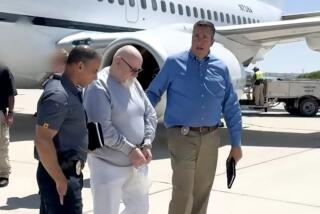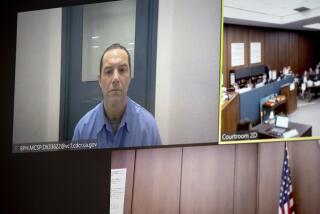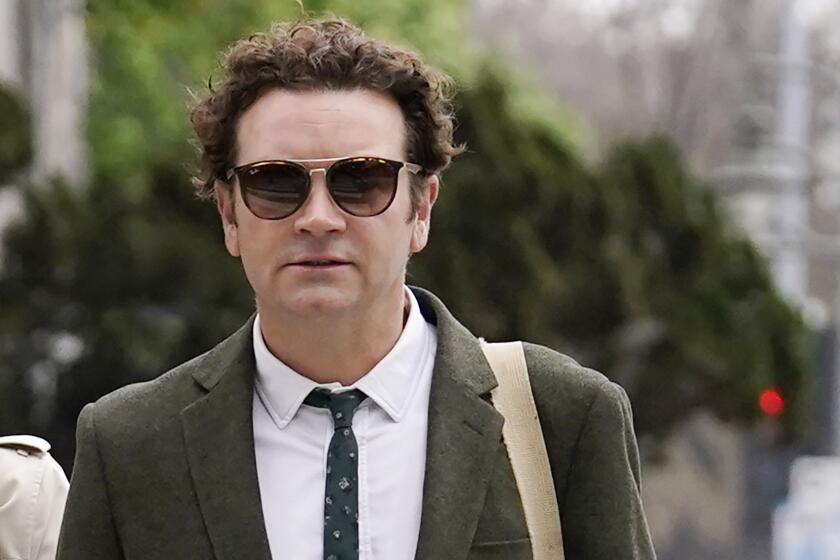Debate About DNA Evidenceâs Use Unresolved : Crime: Proponents say recent attempted rape conviction âvalidatesâ it, while critics question its reliability.
SANTA ANA â Law enforcement officials say the countyâs first criminal conviction based almost entirely on âgenetic fingerprintingâ confirms the wisdom of the Board of Supervisorsâ decision two years ago to fund a laboratory capable of doing DNA testing.
But critics of such testing, who challenge its infallibility, say that the juryâs verdict has not resolved the controversy.
Last week, 32-year-old Frank Lee Soto was convicted of attempted rape after a trial in which âDNA was basically the entire case,â according to the prosecutor, Deputy Dist. Atty. Dennis N. Bauer.
But Sotoâs attorney, Paul G. Stark, said that âthereâs enough controversy over the issue of DNA evidence that I think the jury has resolved an issue that scientists themselves have not resolved.â
The victim in the case, a 79-year-old widow who lived alone, suffered a stroke after the attack and was unable to testify during the five-week trial. There were no other eyewitnesses, and the testimony the jury heard dealt mainly with scientific analysis of semen samples found on the comforter in the womanâs bedroom.
Both prosecution and defense attorneys called expert witnesses to debate the validity and accuracy of DNA test results.
Prosecution experts testified that only one in 189 million Latino men would match the DNA sample taken from Soto.
The defense questioned the reliability of the entire DNA testing procedure, and its expert witnesses said that the likelihood of an identical match, barring any errors in the testing, ranged from one in 71 to one in 39,000.
The jury took 2 1/2 days to find Soto guilty of attempted rape, acquitting him of rape and use of a deadly weapon in the attack. Medical evidence regarding the extent of the assault was ambiguous, both sides agreed.
Dist. Atty. Michael R. Capizzi said he was pleased with the verdict.
âWe have had very strong confidence in the (DNA) process,â he said, noting that he had been a supporter of establishing the lab in the sheriff-coronerâs office.
The Soto verdict, Capizzi said, âvalidatesâ and âjustifiesâ the supervisorsâ backing for the lab.
In 1989, the supervisors appropriated $200,000 to set up the DNA lab, making it the first law enforcement agency in California and the third in the nation to have such a facility. Of the initial funding, $80,000 was raised through private sources for equipment, and an ongoing amount of $120,000 was allocated for two full-time staff members.
Additional annual funding of about $100,000 to $200,000 is provided by reallocation of resources from the sheriffâs existing budget, according to Frank Fitzpatrick, director of forensic science services for the Sheriffâs Department. Other jurisdictions using the lab are charged for the service to further offset expenses.
To date, Fitzpatrick said, more than 50 cases have been handled in the facility, which is in the building housing the morgue. Larger quarters are planned for the DNA lab in the new forensics building.
Fitzpatrick said he was pleased that jurors in the Soto case were able âto see through any argumentâ that the DNA testing wasnât accurate.
That point--the accuracy of the testing--was debated last year in an article in the magazine Science, which strongly argued against relying on the procedure at this time. A companion article, defending DNA testing, cited data generated at the Orange County facility, Fitzpatrick said.
Two of the better known critics of using DNA evidence, who teach at UC Irvine, said after the Soto verdict that the case illustrated much that was wrong with using DNA evidence.
Laurence Mueller, associate professor in the UC Irvine department of ecology and evolutionary biology, was one of the three expert witnesses who testified for the defense in the Soto case.
In his testimony, Mueller said that he took no position on Sotoâs guilt or innocence, his stance in all of the approximately 40 DNA cases he has consulted on.
He said that he told the jury: âI donât think the DNA testing is efficient in the manner that the Orange County crime lab currently weights this evidence, because I do not feel that the available scientific evidence can justify those procedures.â
William Thompson, associate professor of social ecology at UC Irvine as well as an attorney, recently appeared as co-counsel for the defense in a Los Angeles case where a judge excluded DNA testing by the FBI.
âSoto is a case that illustrates the difficulties that ariseâ he said, when a âtruly arcane scientific dispute,â critical to a caseâs outcome, has to be evaluated by a jury.
More to Read
Sign up for Essential California
The most important California stories and recommendations in your inbox every morning.
You may occasionally receive promotional content from the Los Angeles Times.










